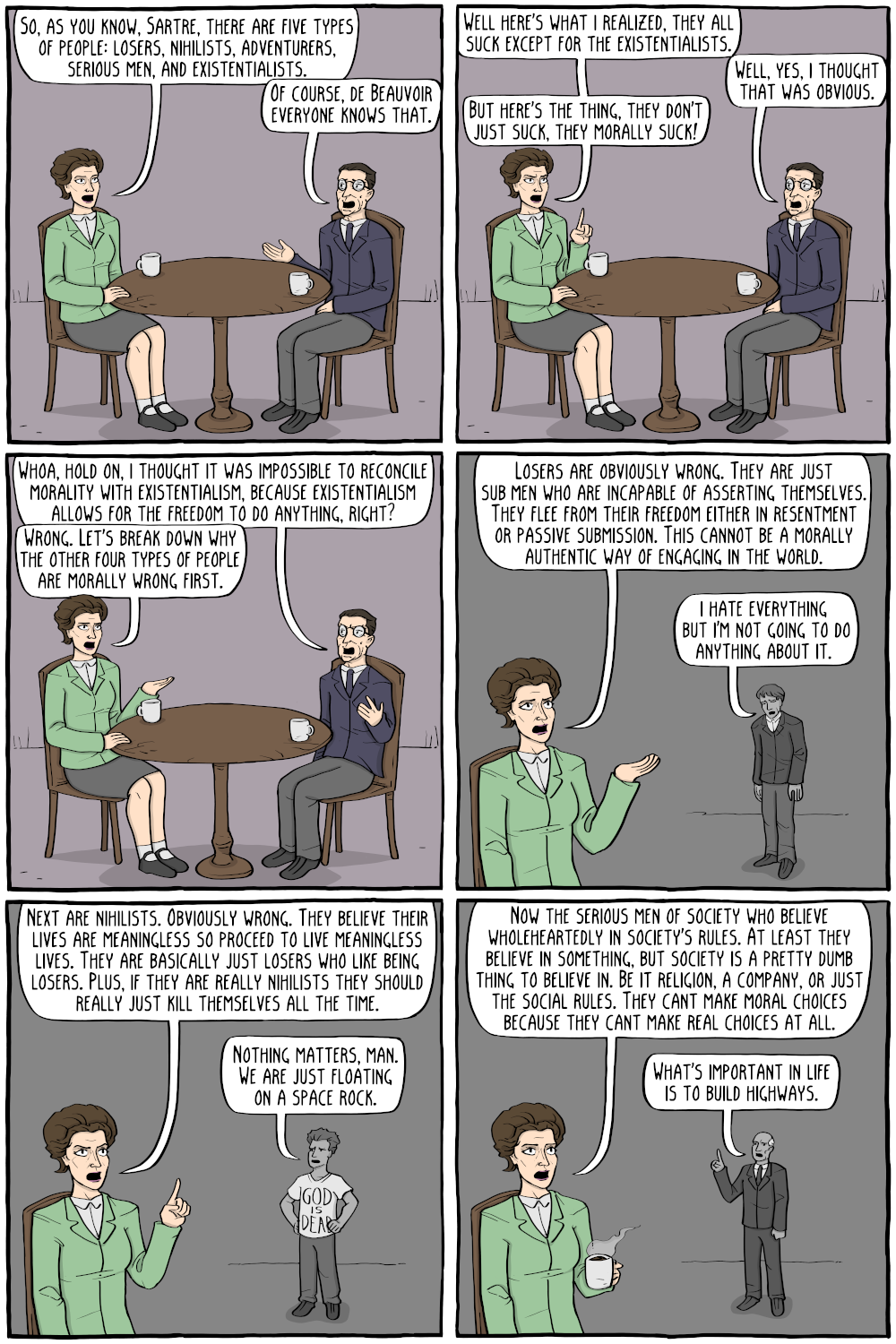

The Ethics of Ambiguity was Simone de Beauvoir's attempt to create an ethical system out of the existentialist framework. This is a naturally difficult problem, and one that Sartre tried himself but never really published anything on, because Sartre and de Beauvoir's brand of existentialist centers human freedom, so it becomes very difficult to explain why someone should follow any rules whatsoever, or even why it is worse to authentically be evil. The comic is mostly making fun of the beginning of the work, where she explains the different modes of existence that human beings take, and why they are inauthentic modes of existence. She, rather amusingly, breaks down humanity into five divisions that seem, well...somewhat arbitrary: sub-men (what I called 'losers'), nihilists, adventurers, serious men, and lastly the existential heroes who are following her and Sartre's advice. Of course she doesn't actually think everyone is precisely one of those five types, but more uses them to illustrate how a large number of people flee from their freedom, and thus from their moral responsibility as well.
She does give more positive examples than the comic makes out, like you cannot with consistency use freedom to deny freedom to others. The only way to do this is with a kind of inauthentic, bad faith willing act. If we are to be authentic in the world we must believe the the same thing for others that we believe for ourselves.
Permanent Link to this Comic: https://existentialcomics.com/comic/361
Support the comic on Patreon!










